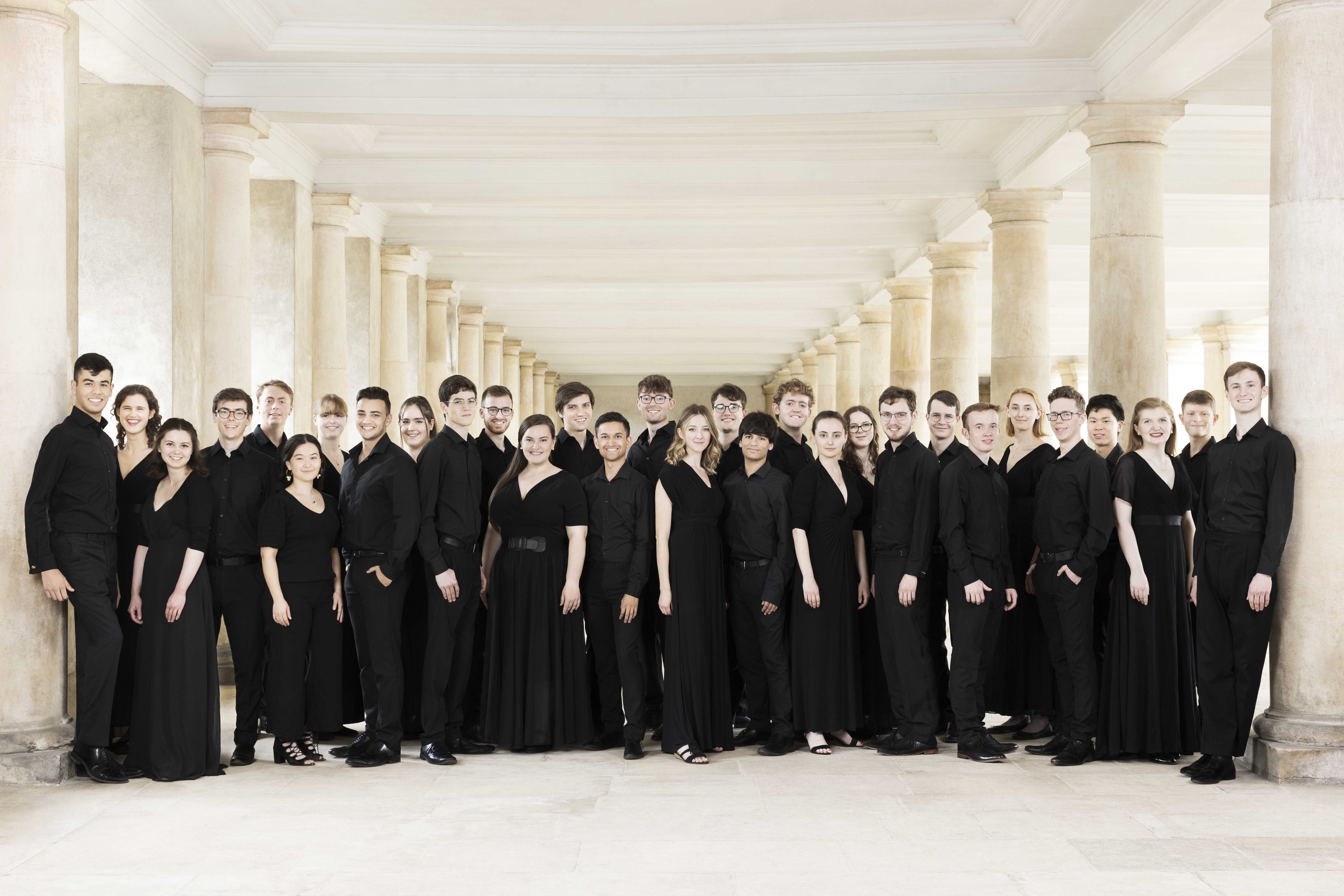Cambridge Cantat 800 Recital, Apr 2009 - The Church Times
> See concert details...In good voice after 800 years
Garry Humphreys samples a festival of Cambridge choirs
AS CAMBRIDGE UNIVERSITY celebrates the 800th anniversary of its foundation, it is no surprise, in a city famous for its choirs, that a week should be devoted to demonstrating not only the current prowess of its resident singers and players of the past and present, but also the composers who flourished there, as well as marking some composer anniversaries of 2009.
Naturally, the college choirs bore the burden of “Cambridge Cantat 800”, and throughout the week evensong was sung, beginning at King’s, ending at St John’s — with seven choirs together at Ely Cathedral on the Wednesday, broadcast live by BBC Radio 3 — along with organ recitals (including Simon Preston on Easter Monday) and on four evenings a “Late-Night Liturgy” at 10 p.m., sung by different groups, at the Round Church and in the college chapels of Emmanuel, Selwyn, and Sidney Sussex.
There was a “celebrity song recital”, a cabaret with The Gentlemen of St John’s, a conducting masterclass with Christopher Robinson (formerly organist and director of music at St John’s), leading to a performance of Haydn’s “Nelson” Mass, a singing workshop for children and adults, and a choral workshop with John Rutter (formerly of Clare College), to study and sing the Five Mystical Songs and other works by Vaughan Williams (who studied at Trinity).
In the larger-scale concerts, Haydn predominated, starting with a “Haydn Celebration” at King’s (King’s and St John’s choirs combining) on Holy Saturday. This included the Grosse Orgelsolomesse, which reappeared on a more domestic scale at the Easter Day sung eucharist at King’s.
One of the most enjoyable concerts of the week was in Great St Mary’s, when the choir of Gonville and Caius College and the Cambridge University Chamber Orchestra performed Haydn’s Symphony No. 80 and his Maria Teresa Mass, separated by Mozart’s Litaniae Lauretanae (K.109). They were conducted by Charles Brett, a former King’s choral scholar and one of the most distinguished English countertenors of the post-Deller period, famous for his reliability, musicality, and refreshing lack of flamboyance.
Therefore, it was a surprise to observe the vigour with which he controlled and inspired his performers. In the Haydn, there was a real Austro-Hungarian earthiness that is so often lacking in many over-refined present-day interpretations. The Mozart, for vocal quartet, string trio, and organ, is an astonishing achievement for a 15-year-old — even if his name is Mozart! Good singing and playing, too, though one would have liked more strings to balance with the wind and brass in the tuttis — and did the orchestra actually tune to the organ? But a hugely enjoyable concert.
The scope of this little festival is illustrated by contrasting this with the lunchtime choral recital at Trinity College on the final day, Low Sunday. Under their director of music Stephen Layton, the chapel choir sang music by David Briggs (like Layton, a former King’s College organ scholar), Tarik O’Regan (Fellow Commoner in the Creative Arts at Trinity), Gustav Holst, the American Morten Lauridsen, and Arnold Bax.
This is a large choir, 35-strong, and makes a correspondingly big sound — rather overwhelming during David Briggs’s very French 2002 Messe pour Notre-Dame, sung from the choir stalls. The rest of the programme was delivered from the steps in front of the altar, and more comfortably filled the large space with sound from east to west. And what sounds! The unearthly beauty of O’Regan’s Care charminge sleepe — a setting of Elizabethan words for double choir and strings; Holst’s third set of Choral Hymns from the Rig Veda for female voices and harp (played by Sally Pryce); the mystical Lauridsen’s Ubi Caritas et Amor — three pieces, in French, Spanish and English, the first and third with piano accompaniment, the second unaccompanied. Morten Lauridsen’s music was new to me, but I shall seek out his recordings.
The concert ended with Mater ora filium, the choral masterpiece of that “brazen romantic” Arnold Bax, a thrilling performance with terrific solos, particularly from the sopranos. Here was choral singing of rare distinction by what must be the best mixed choir in Cambridge, directed by one of the finest choral directors around – a man with the ability to galvanise performers and audiences alike. A very special occasion – even for Cambridge.
Garry Humphreys
